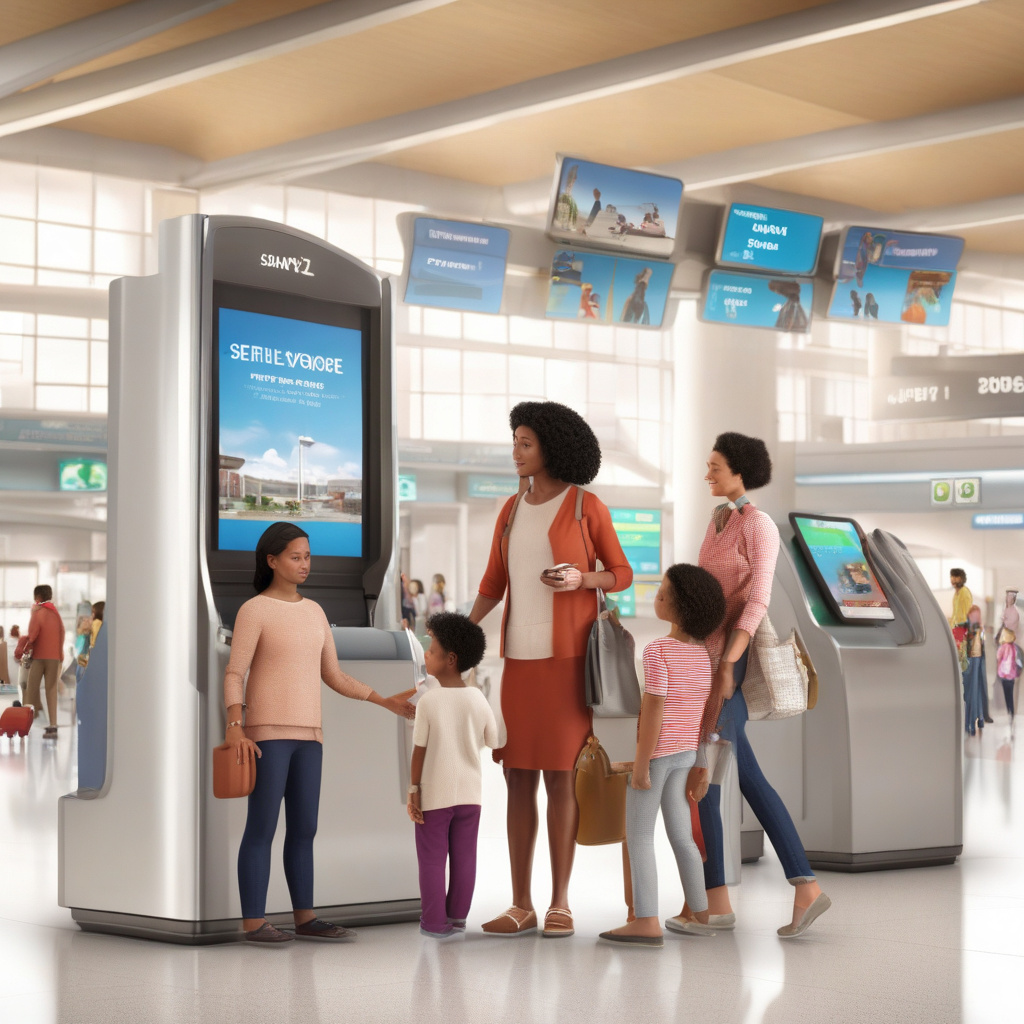Technology: Revolutionizing Travel Experiences
In the fast-paced world of travel, efficiency is key. From booking flights to navigating airports, every step of the journey needs to be seamless to ensure a stress-free experience for passengers. Fortunately, advancements in technology such as biometrics and AI are paving the way for a new era of travel, one that is characterized by reduced queues, minimal delays, and personalized services.
One of the most significant ways technology is enhancing the travel experience is through the implementation of biometric systems. By utilizing unique biological traits such as fingerprints, facial recognition, and iris scans, airports and airlines can verify passengers’ identities quickly and accurately, reducing the need for manual checks and paper documents. This not only speeds up the security process but also eliminates the hassle of digging through bags for boarding passes, leading to a more streamlined and efficient journey from check-in to boarding.
Moreover, biometric technology has the potential to create a more personalized travel experience for passengers. Airlines can use biometric data to offer tailored services based on individual preferences, such as seating arrangements, meal choices, and entertainment options. By leveraging these insights, airlines can cater to the specific needs and desires of each traveler, enhancing customer satisfaction and loyalty.
In addition to biometrics, artificial intelligence (AI) is playing a crucial role in transforming the way we travel. AI-powered systems can analyze vast amounts of data in real-time to optimize flight schedules, predict delays, and improve operational efficiency. For example, airlines are using AI algorithms to forecast passenger demand, adjust ticket prices dynamically, and optimize route planning to minimize fuel consumption and reduce carbon emissions.
Furthermore, AI chatbots are revolutionizing customer service in the travel industry. These virtual assistants can provide instant support to passengers, answering queries, offering travel recommendations, and even assisting with booking changes. By harnessing the power of AI, airlines can deliver personalized and responsive customer service 24/7, enhancing the overall travel experience and building stronger relationships with passengers.
Overall, the integration of biometrics and AI into the travel industry is reshaping the way we experience and interact with the world. By reducing friction points, enhancing security, and personalizing services, technology is revolutionizing travel, making it more convenient, efficient, and enjoyable for passengers worldwide. As these technologies continue to evolve, we can expect even more innovations that will further elevate the travel experience, making it smoother and more seamless than ever before.
In conclusion, the marriage of technology and travel has unlocked a world of possibilities, from ticket-free journeys to personalized services. By embracing biometrics and AI, the travel industry is breaking down barriers, overcoming friction, and building a better travel experience for all. So, the next time you embark on a journey, remember that technology is on your side, working behind the scenes to ensure a smooth and hassle-free adventure.
travel, technology, biometrics, AI, passenger experience
